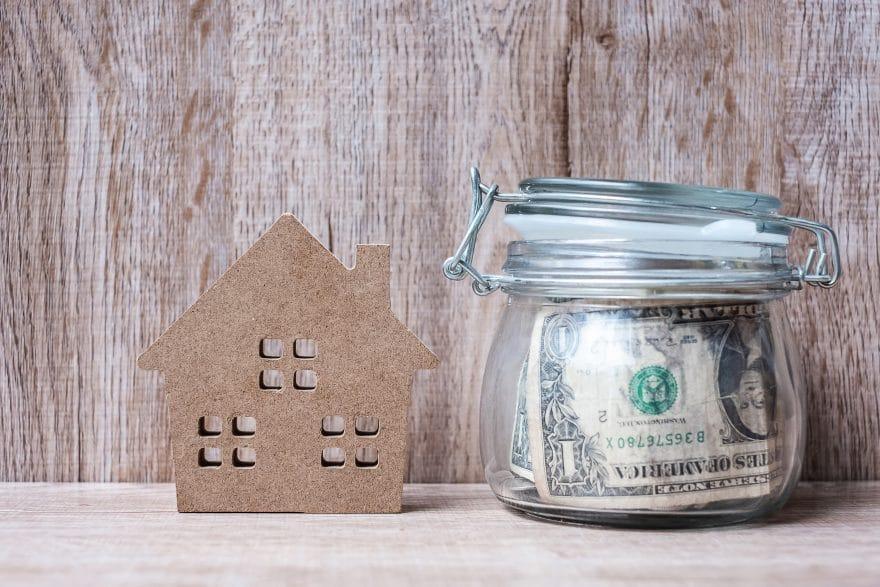If you’re an active-duty service member, veteran or surviving spouse, a VA loan could help you finance a home with no down payment and a lower credit score. But you may be wondering: Do VA loans have closing costs? The answer is yes – various closing costs apply to a VA loan as they would with other mortgages.
“VA home loan closing cost fees are essential for borrowers to understand because they can have a significant impact on the overall cost of your loan,” explains Realtor Eric Bramlett, founder of Bramlett Residential Realty in Austin, Texas. “By knowing these fees, you can make better-informed decisions about how much you are willing to pay for your VA loan and the terms under which you are willing to accept the loan.”
Read on to learn how VA loan closing costs work, their terms and their unique features, including the way they differ from those carried by other mortgages.
What are VA loan closing costs?
VA loan closing costs are all the fees associated with originating a VA loan. These generally include:
- Origination fee – The charge for creating the loan. The U.S. Department of Veterans Affairs (VA) limits this fee to 1 percent of the total loan amount.
- Funding fee – This one-time charge, which is on most VA loans, is based on the type of VA loan (for example, purchase or refinance), the total amount being borrowed, your down payment and whether you’ve previously had a VA loan. The funding fee for purchase loans ranges from 1.25 percent to 3.3 percent. You can roll this fee into your loan or pay it out-of-pocket at closing.
- Discount points – Borrowers can opt to purchase points to lower the interest rate on their VA loan. This is an added upfront cost paid at closing, which allows you to secure a rate lower than the par rate.
Other VA loan closing costs could include:
- Credit check fee
- Title search and title insurance costs
- Hazard insurance
- Recording fee
- Flood certification fee
- Survey fee
- Prepaid items (property taxes, homeowners insurance premium)
How much are VA closing costs?
VA loan closing costs can range from 1 percent to 6 percent of your loan, but the final tally ultimately depends on the lender you choose to work with. With conventional loans, total closing costs will typically equate to 2 percent to 5 percent of your loan amount.
By law, your VA lender is required to provide an estimate of all the closing costs associated with your loan within three days of applying for it, as well as a finalized list of the closing costs, known as the closing statement, at least three days before your closing date.
Bankrate’s handy VA loan closing costs calculator can help you get a sense of what your closing costs might tally.
How are VA closing costs different from other mortgage loans?
VA loan closing costs are different from conventional loan closing costs: They include the unique VA funding fee and exclude many of the common fees associated with non-VA loans.
The VA prohibits VA loan borrowers from being assessed certain types of fees, including:
- Application fee
- Appraisal fee if ordered by the lender
- Home inspection fee if ordered by the lender
- Document preparation fee
- Attorney’s fees
- Mortgage rate lock fee
- Postage fee
- Escrow fee
“Other closing costs that VA lenders are not allowed to charge include prepayment penalties, unreasonable fees for obtaining credit reports and charges for notary services,” says Philadelphia-based commercial and family law attorney Min Hwan Ahn.
As a result, “VA loan closing costs are often lower than those for other types of mortgage loans, including conventional mortgages. This is because VA loans are backed by the government, which reduces the risk for the lender and allows them to offer lower closing costs,” he adds.
Another savings: VA loans do not obligate you to pay mortgage insurance, an extra monthly charge often demanded of borrowers who make small down payments. With conventional loans, you are required to pay private mortgage insurance (PMI) if you put down less than 20 percent. With FHA loans, you’ll pay an FHA mortgage insurance premium (MIP) if you make a down payment of less than 20 percent.
Because they’re backed by the government, VA loan closing costs are often lower than those for other types of mortgage loans, including conventional mortgages.— MIN HWAN AHN, PHILADELPHIA ATTORNEY
Who pays closing costs on a VA loan?
There are different ways to pay for your VA loan closing costs. Here are your options:
- Pay the closing costs in full out-of-pocket at closing.
- Ask the home seller to pay for the closing costs. The seller can agree to pay a portion of the buyer’s closing costs, up to 4 percent of the mortgage, including the funding fee or origination fee. Note that for a VA loan, sellers are always required to pay for the real estate agent commissions, brokerage fees and termite reports. As with any home sale, most of the other closing costs can be negotiated by the buyer and seller.
- Roll the costs into your loan. This is only allowed for the funding fee (other closing costs usually can’t be rolled into your VA purchase loan). Think carefully about whether this move makes financial sense over the long run: Since it’s added to your loan principal, you’ll be paying interest on this closing cost. So while it helps with lowering upfront expenses, you end up paying more during the life of the loan.
How to reduce your closing costs
Besides negotiating with the seller to pay for some of the closing costs, you can cut your VA closing costs by avoiding the purchase of discount points; these can reduce your interest rate but must be paid upfront at closing.
In addition, there are some special circumstances in which a borrower is exempt from the funding fee, which reduces overall closing costs. These include if you are:
- Living with a disability connected to your service and being compensated for the disability
- Living with a disability connected to your service and receiving military retirement pay (instead of compensation)
- An active-duty Purple Heart recipient
- A surviving spouse whose partner died in service (and is being compensated) or from a service-related disability
- Eligible to be compensated due to a pre-discharge
You can also try to snag more savings by asking your mortgage lender if it offers any discounts or rebates. Some might even waive certain costs if you ask. If possible, try to close your mortgage toward the end of the month, as well. This reduces the amount of per-diem interest you’ll have to pay.
Additionally, some closing cost and down payment assistance programs might be available at the state level — some specifically for veterans. Certain cities and counties offer programs of their own, as well. You can ask your lender about the availability of these programs or contact your state’s housing authority.





